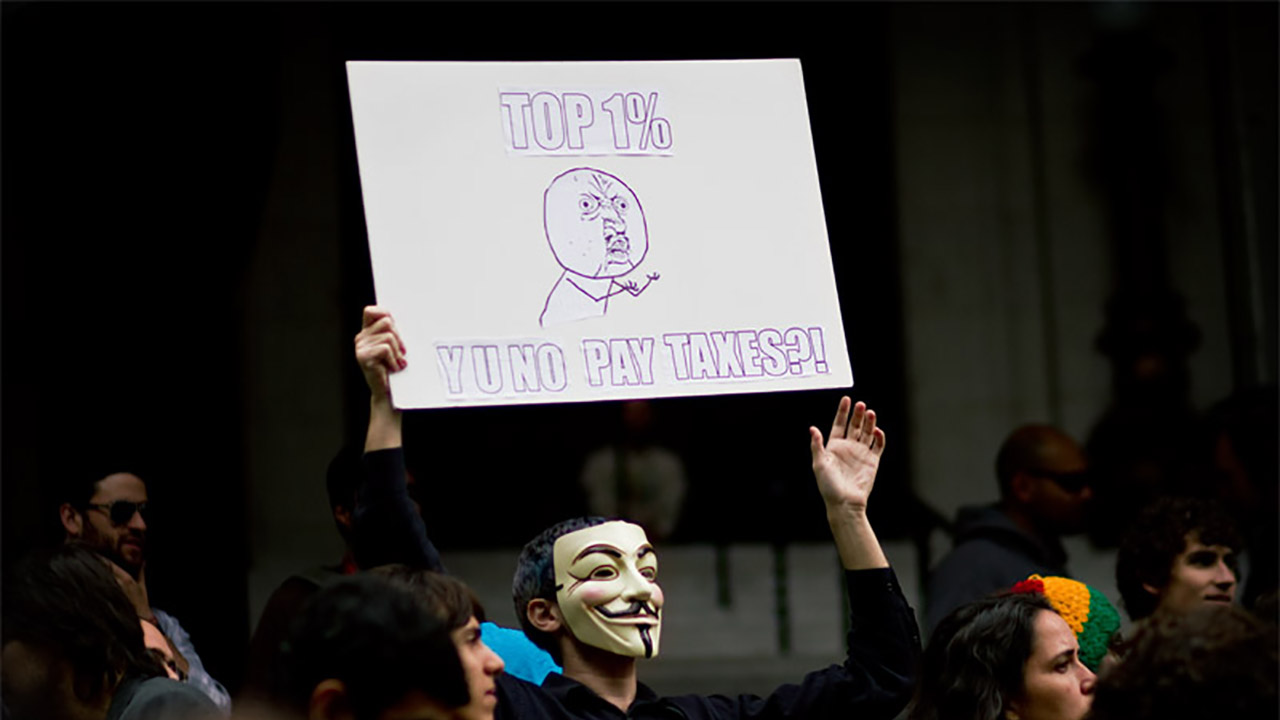Whatever your thoughts on Occupy Wall Street, the protesters were right about at least one thing: The richest one percent own a disproportionate amount of wealth, and they must be stopped. In a new report released by poverty-fighting charity Oxfam, it’s estimated that by next year the one percent will own more than half of the world’s wealth. As of now, the richest of the rich control 48 percent of the world’s wealth.
What’s particularly alarming about the report is that this economic inequality is deepening. “Do we really want to live in a world where the one percent own more than the rest of us combined?” asked Oxfam executive director Winnie Byanyima in a letter. “The scale of global inequality is quite simply staggering and despite the issues shooting up the global agenda, the gap between the richest and the rest is widening fast.”
“Between 2002 and 2010 the total wealth of the poorest half of the world in current U.S. dollars had been increasing more or less at the same rate as that of billionaires,” the report found. “However since 2010, it has been decreasing over that time.”
“Wealth of the 80 richest people in the world” — which no owns the same as half the world’s population — “has doubled in nominal terms between 2009 and 2014, while the wealth of the bottom 50% is lower in 2014 than it was in 2009,” the report continued.
Oxfam released its annual report ahead of the World Economic Forum, in which rich and powerful people leaders gather at a Swiss resort to debate income inequality and presumably snicker about the problems of the poors. The report, which uses data from Credit Suisse and Forbes, also points to the industries and practices behind the massive wealth accumulation:
These wealthy individuals have generated and sustained their vast riches through their interests and activities in a few important economic sectors, including finance and insurance and pharmaceuticals and healthcare.
Companies from these sectors spend millions of dollars every year on lobbying to create a policy environment that protects and enhances their interests further.
To close the income gap, Oxfam has suggested 9 recommendations for governments and leaders, which include promoting women’s rights, paying workers a living wage, shifting the tax burden.
(Photo: Seema Krishnakumar)


